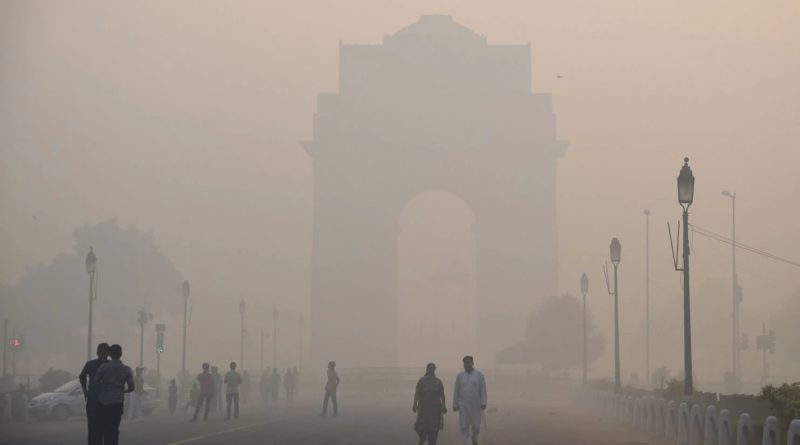Delhi Air Quality Has Hit Emergency Levels
The morning after Diwali, Delhiites witnessed a thick, pungent haze that had covered the city. Air quality has entered the ‘severe plus’ or ‘emergency’ category and has been declared health emergency in NCR and nearby areas.
Environment Pollution (Prevention and Control) Authority has prohibited construction activity till November 5 and bursting of crackers has also banned. Schools have been closed till November 5.
Some of the most polluted areas in Delhi are Bawana, DTU, Wazirpur, Anand Vihar, Greater Noida, Noida & Faridabad. The unfavourable weather conditions and low wind speed is adding up to the severity of the situation.
Avoid morning & evening walks, fill up your house with indoor plants, and avoid going outdoors unless absolutely necessary.
“Due to the rising level of smoke in Delhi due to burning of crop stubble, the pollution has increased. The government has decided that all schools will remain closed in Delhi till November 5,” the Chief Minister Mr. Kejriwal tweeted. He describes the city as “gas chamber”.
Delhi sees a rise in pollution during this time of the year owing to a change in meteorological conditions, combined with local emissions and the effects of crop residue burning in neighbouring states. This is because wind patterns change and blows from the northwest during , bringing pollutants such as smoke, to Delhi with it.
Meanwhile, a new analysis released says people living in the Indo-Gangetic Plain (IGP) region are expected to lose 7 years of their life because of severe air pollution.
The Air Quality Life Index (AQLI), produced by the Energy Policy Institute at the University of Chicago (EPIC), shows there has been a 72% increase in pollution from 1998 to 2016 in the region which accounts for 40% of India’s population. In 1998, the impact on people’s lives from dirty air would have been 3.7 years of life expectancy.
The analysis also states that citizens in the IGP region which includes Delhi, Haryana, Punjab, Uttar Pradesh, Bihar and West Bengal are exposed to far higher levels of air pollution and hence have shorter lives.
EPIC had released a similar study for Delhi earlier this year which stated residents in Delhi could extend their life by 3.35 years if the National Clean Air Programme is implemented.
Updates: November 3
Delhi continues to remain enveloped in smog.
With farmers continuing to defy the ban on stubble burning, a blanket of haze engulfed Punjab and Haryana that also extended to Delhi. The capital city’s air quality is likely to remain “severe” due to calm winds, which is unfavourable for dispersion of pollutants.
32 Flights have been diverted.




